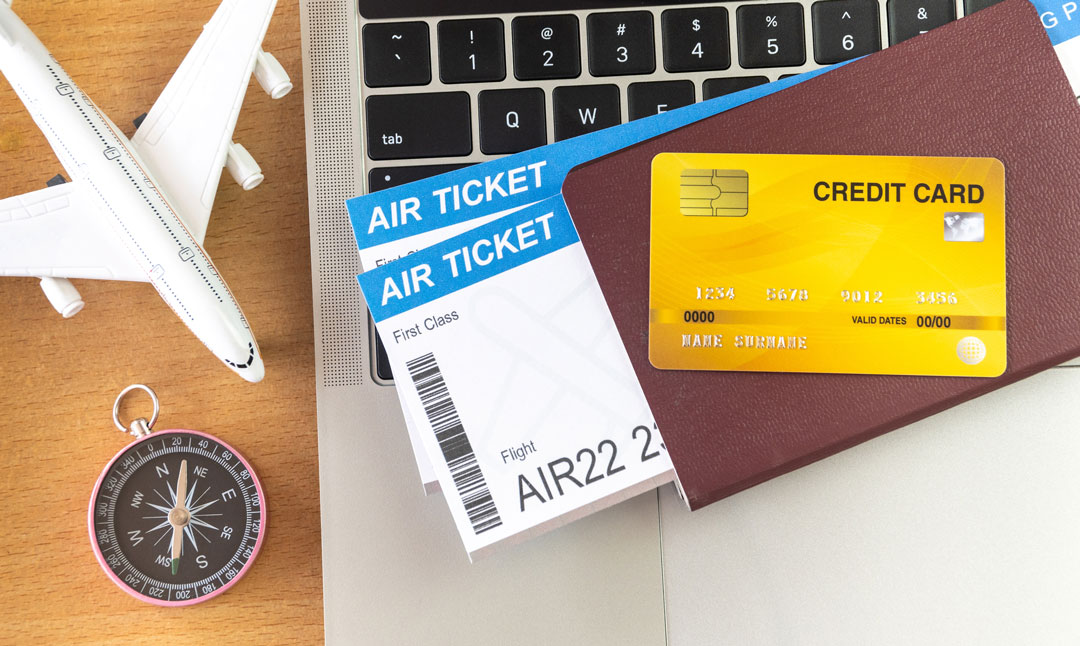Ensuring Secure Payment Processing For The Travel Industry
The travel industry faces unique challenges in payment processing, necessitating robust security measures to protect sensitive customer data and ensure transaction integrity. With global travel on the rise, the demand for seamless and secure e-commerce payment solutions is more critical than ever. This article analyzes the key aspects of secure payment processing for travel industry professionals, focusing on the latest technologies, compliance standards, and best practices to mitigate risks and enhance customer trust.
Understanding the Unique Needs of the Travel Industry
The travel sector is distinct in its financial operations, characterized by high-value transactions, multi-currency dealings, and cross-border payments. These elements pose specific security challenges, including fraud, chargebacks, and compliance with various international regulations. Travel businesses, from airlines to hotels and tour operators, must adopt tailored payment processing systems that can handle these complexities efficiently.
The foundation of secure payment processing in the travel industry lies in understanding the scope of transactions. Travel companies often process payments from different geographical locations, which means dealing with diverse banking systems and compliance with multiple regulatory frameworks. In addition to the legal compliance aspect, adapting to these requirements helps in building trust with travelers who are increasingly concerned about their data privacy.
Leveraging Technology for Enhanced Security
One of the most effective ways to ensure security in payment processing is the adoption of advanced technological solutions. Here are some key technologies that are reshaping how travel businesses handle payments securely:
- Encryption and Tokenization: Encryption converts sensitive payment information into unreadable text until it reaches the intended destination, significantly reducing the risk of interception. Tokenization involves replacing payment data with unique identification symbols that preserve all the essential information about the data without compromising its security. These technologies are vital in protecting data in transit and at rest, making it harder for unauthorized users to access sensitive information.
- Secure Socket Layer (SSL) Technology: SSL certificates are crucial for any travel industry website that handles payment processing. They encrypt the data exchanged between a user’s browser and the server, ensuring that personal and payment information remains secure from interception or tampering.
- Fraud Detection and Management Tools: Implementing sophisticated fraud management systems can help detect and prevent fraudulent activities in real-time. These systems analyze transaction patterns and flag anomalies that deviate from normal purchasing behaviors, such as high-ticket purchases made in quick succession or transactions from unusual locations.
Complying with International Payment Regulations
Compliance is a significant aspect of secure payment processing. Travel businesses must ensure that they adhere to international standards and regulations designed to protect consumer data and prevent fraud. Key regulations include:
- PCI DSS: This standard requires businesses that accept card payments to maintain a secure environment, thus ensuring the protection of cardholder data. Compliance with PCI DSS is not optional; it is mandatory for all entities that store, process, or transmit cardholder data.
- GDPR: For travel businesses operating in or dealing with customers from the European Union, GDPR compliance is crucial. This regulation mandates the protection of personal data and privacy, giving individuals more control over their personal information.
- PSD2 and SCA: The Payment Services Directive (PSD2) in the EU introduces requirements for Strong Customer Authentication (SCA), which adds layers of security through two-factor authentication and ensures safer payments.
Understanding and integrating these regulations into your payment processing systems can go a long way in improving the security and reliability of your transaction processes. This is crucial for maintaining the trust of global travelers who are increasingly aware of their rights and the risks associated with online transactions.
Implementing Robust Payment Gateways in the Travel Industry
In the fast-paced travel industry, implementing a robust payment gateway is crucial for not only enhancing transaction security but also improving customer satisfaction and operational efficiency. Payment gateways are the intermediaries that securely transfer payment data from the customer to the acquirer and then through the payment networks to process a transaction. Consider the critical features of payment gateways that are essential for travel businesses and the best practices for their implementation.
Critical Features of Payment Gateways for the Travel Industry
- Multi-Currency Support: Travel businesses often deal with customers from various parts of the world, making transactions in multiple currencies a necessity. A payment gateway that supports multiple currencies can provide a seamless payment experience for international travelers, reducing currency conversion hassles and associated fees.
- Dynamic Currency Conversion (DCC): Closely related to multi-currency support, DCC allows travelers to see prices and pay in their home currency, offering transparency and potentially improving customer satisfaction. However, it’s crucial to ensure that customers are fully informed about any extra costs associated with currency conversion.
- Integrated Fraud Prevention: Advanced fraud prevention tools should be a standard feature of any payment gateway used in the travel industry. These tools can include customizable risk parameters, real-time tracking, and automated alerts to prevent fraudulent transactions before they affect the business.
- High Uptime and Reliability: The travel industry operates 24/7, and any downtime can lead to significant losses and reduced customer trust. High reliability and guaranteed uptime are non-negotiable features for a payment gateway servicing this sector.
- Compliance and Security Features: Beyond basic encryption and tokenization, payment gateways should comply with PCI DSS, GDPR, and other relevant regulations to protect data privacy and ensure security across all transactions.
Best Practices for Payment Gateway Integration
Implementing a payment gateway that meets the above criteria involves several best practices that can ensure success and security:
- Choosing the Right Payment Gateway Provider: Select a provider that offers the necessary technological capabilities and aligns with your business’s specific needs in terms of scalability, customer service, and technical support. It’s crucial to consider the provider’s track record in the travel industry.
- Seamless Integration with Existing Systems: The payment gateway should integrate seamlessly with your existing booking and management systems. This integration reduces the need for manual data entry, decreases the chance of errors, and provides a smoother transaction process for customers.
- Regular Updates and Maintenance: Cyber threats are continually evolving, and so should your payment gateway. Regular updates and maintenance by the provider are essential to protect against new vulnerabilities and ensure the system remains compliant with the latest security standards.
- Training and Support for Staff: Employees need to understand how to use the payment gateway effectively and securely. Comprehensive training and ongoing support from the gateway provider can help prevent human errors, which are often a significant security risk.
Enhancing Customer Trust Through Transparent Policies
Trust is a critical component of customer relationships in the travel industry, particularly when it comes to payments. Transparent policies regarding payment security, data privacy, and transaction processes can significantly enhance customer trust. Here’s how travel businesses can build and maintain this trust:
- Clear Communication of Payment Security Measures: Customers should be well informed about the security measures in place to protect their payment information. This includes explaining how their data is encrypted, stored, and used.
- Transparent Fee Structure: Any fees associated with transactions, especially those related to currency conversion or cross-border payments, should be clearly disclosed to customers before they complete their purchase.
- Easy Access to Support: In case of payment issues, customers should have easy access to responsive and knowledgeable support. Providing multiple channels for support (such as phone, email, and chat) ensures that help is available whenever it’s needed.
- Robust Privacy Policies: Since the travel industry handles a significant amount of personal data, robust privacy policies that comply with international standards are essential. These policies should be easily accessible and clearly articulate how customer data is collected, used, and protected.
Implementing these strategies can significantly mitigate risks associated with online transactions and build a foundation of trust with travelers worldwide.
Optimizing Payment Processing Systems for Peak Performance in the Travel Industry
Let’s consider specific strategies for optimizing payment systems to handle high volumes of transactions and manage customer data effectively.
Streamlining Transaction Processes
Efficient transaction processes are vital for keeping customers satisfied, especially in an industry where timing can be everything. Here are some strategies for streamlining transactions:
- Automated Processing: Implementing automated systems for common transactions can significantly speed up processing times, reduce human error, and free up staff to handle more complex customer service tasks.
- Real-Time Processing: For instant booking confirmations, real-time transaction processing is essential. Ensuring that your systems can handle real-time data transfer and processing without lags or downtime is crucial for maintaining a competitive edge.
Enhancing Data Management
Effective data management is critical for maintaining security, compliance, and customer satisfaction. Here are key considerations for optimizing data management practices:
- Centralized Data Repository: Having a centralized system for storing and managing customer and transaction data can enhance security and efficiency. It simplifies compliance with data protection regulations and makes it easier to implement uniform security measures.
- Regular Data Audits: Regular audits help ensure data accuracy and integrity. They can identify and rectify discrepancies in the payment process, preventing potential security issues and ensuring that data remains accurate and reliable.
Why Choose AVP Solutions for Your Payment Processing Needs
AVP Solutions delivers top-tier payment processing solutions tailored to meet the diverse needs of businesses across various industries. Our comprehensive suite of services ensures reliable, secure, and efficient transaction management, utilizing the latest technologies and compliance protocols.
Our dedication to customer support sets us apart, providing personalized assistance and innovative solutions that optimize payment operations and enhance customer satisfaction. Trust AVPS to be your go-to provider for all your payment processing requirements, where security and service excellence are our top priorities.
Securing a Future-Proof Payment Environment
Securing and optimizing payment processing systems in the travel industry calls for the implementation of best practices that enhance security, efficiency, and customer trust. By continuously adapting to technological advancements and evolving industry standards, travel companies can create a robust, secure, and user-friendly payment environment that meets the current needs and anticipates future trends and challenges. The integration of our innovative online payment solutions plays a pivotal role in supporting secure and efficient transaction landscapes in the travel industry.








